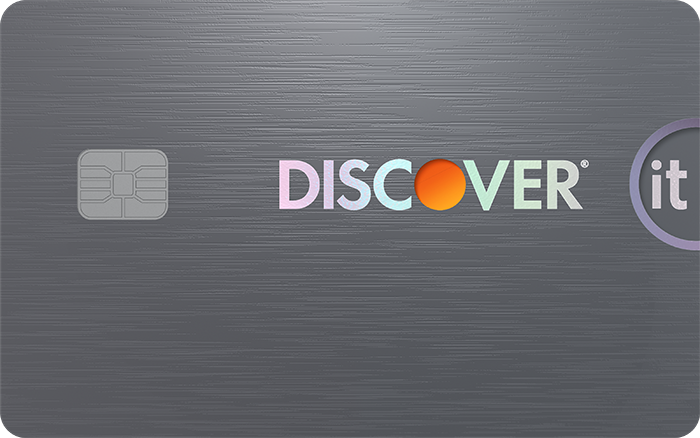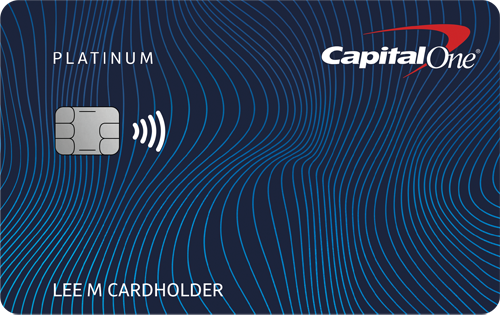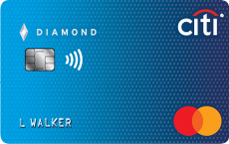If you're working on your credit, a secured credit card can be a valuable tool to help you along the way. Most credit cards are hard to qualify for when you have any issues on your credit history. Secured cards are among the easiest credit cards to get, making them perfect for this situation.
Not everyone understands secured cards, especially since they differ from traditional credit cards. Keep reading to learn all you need to know about secured credit cards and how to use them.
What is a secured credit card?
A secured credit card is one that requires a refundable security deposit to open. Because the credit card company gets a deposit from the cardholder, it can approve higher-risk applicants.
Secured credit cards are often available to consumers who have no credit history or a low credit score due to previous problems managing credit. That means a secured card is a natural choice if you need to build or rebuild your credit score. Another option is a personal loan for bad credit, but that costs you interest, which you can avoid paying with a secured credit card.
With many secured cards, the amount you deposit is equal to the starting credit limit. These cards usually let you choose between a minimum and maximum deposit amount, such as $200 to $5,000. You can put down a larger deposit if you have the money available and you'd like a higher credit limit.
There are secured credit cards that can graduate to unsecured cards. Graduation is when the card issuer refunds your deposit because you've used your card and paid on time consistently. Not all secured cards offer this, and for the ones that do, the time it takes to graduate varies. If a secured credit card can't graduate, then you need to close the card in good standing to get your deposit back.
How does a secured credit card work?
When you're approved for a secured credit card, you need to pay the security deposit. Most card issuers only accept payments by bank transfer. Certain credit card companies also accept other forms of payment, such as a money order.
Besides the security deposit, a secured credit card is exactly like any other credit card. There's no other difference between how credit cards work if they're secured or unsecured.
You can use a secured card to make purchases up to the credit limit. Your card's credit limit is the maximum amount you can spend. It's better to only use a small portion of the credit limit, though. Using less than 30% of your credit limit keeps your credit utilization low. This is a key part of understanding your credit score so you can get it as high as possible.
After every statement period, there's a bill with a payment due date. Pay at least the minimum amount by the due date, and your account will remain in good standing. Keep in mind that it's better to pay off your full statement balance every time, as this helps you avoid interest on your purchases. You also won't be stuck paying off debt later.
There are two ways to get your security deposit back with a secured card:
- Wait for your card to graduate to an unsecured credit card. Only some secured credit cards can do this. The time it takes for this to happen depends on how you use your card and the card issuer's rules.
- Close the credit card account in good standing. The drawback is that you can't continue building your history with the credit card. That's why when comparing credit cards, it's preferable to find a secured card that can graduate.
Secured vs. unsecured credit cards
Here's a breakdown of the differences between secured and unsecured credit cards:
| Secured credit cards | Unsecured credit cards |
|---|---|
| Require a security deposit | Don't require a security deposit |
| Available to consumers with limited credit histories or previous issues on their credit files | Usually have stricter approval requirements, such as a credit score in the fair or good range |
| Limited or no benefits | Often have extra perks, such as cash back, travel rewards, and purchase protections |
There's only one guaranteed difference between these two types of credit cards, and that's the security deposit. Secured credit cards require a deposit from the cardholder. Unsecured credit cards don't, as the card issuer extends credit based on the cardholder's credit report.
Because of that, secured credit cards have much more flexible approval requirements. They're popular as a first credit card, and they're also some of the best credit cards for bad credit. Unsecured credit cards tend to be harder to get, with some exceptions. Since the card issuer isn't getting a deposit, it doesn't have as much protection if the cardholder defaults.
Secured cards also tend to be light on benefits. They're intended for building credit, so it's rare to see them offer rewards or special benefits. On the other hand, many unsecured cards offer purchase rewards and other valuable features.
For both secured and unsecured cards, there are options with and without an annual fee. A secured card without an annual fee is a better choice if possible. The limited benefits on secured cards mean that an annual fee typically isn't worth it.
Here are a few great secured cards that might be a good fit for you.

|

|

|
| Discover it® Secured Credit Card | Capital One Platinum Secured Credit Card |
Citi® Secured Mastercard® |
|
Rating image, 5.00 out of 5 stars.
5.00/5
Our ratings are based on a 5 star scale.
5 stars equals Best.
4 stars equals Excellent.
3 stars equals Good.
2 stars equals Fair.
1 star equals Poor.
We want your money to work harder for you. Which is why our ratings are biased toward offers that deliver versatility while cutting out-of-pocket costs.
|
Rating image, 4.00 out of 5 stars.
4.00/5
Our ratings are based on a 5 star scale.
5 stars equals Best.
4 stars equals Excellent.
3 stars equals Good.
2 stars equals Fair.
1 star equals Poor.
We want your money to work harder for you. Which is why our ratings are biased toward offers that deliver versatility while cutting out-of-pocket costs.
|
Rating image, 3.75 out of 5 stars.
3.75/5
Our ratings are based on a 5 star scale.
5 stars equals Best.
4 stars equals Excellent.
3 stars equals Good.
2 stars equals Fair.
1 star equals Poor.
We want your money to work harder for you. Which is why our ratings are biased toward offers that deliver versatility while cutting out-of-pocket costs.
|
|
Apply Now for Capital One Platinum Secured Credit Card
On Capital One's Secure Website. |
||
|
Credit Rating Requirement:
Falling within this credit range does not guarantee approval by the issuer. An application must be submitted to the issuer for a potential approval decision. There are different types of credit scores and creditors use a variety of credit scores to make lending decisions.
Recommended Credit Score required for this offer is: New/Rebuilding Under(579)
New/Rebuilding Under(579) |
Credit Rating Requirement:
Falling within this credit range does not guarantee approval by the issuer. An application must be submitted to the issuer for a potential approval decision. There are different types of credit scores and creditors use a variety of credit scores to make lending decisions.
Recommended Credit Score required for this offer is: Fair/New to Credit Under(669)
Fair/New to Credit Under(669) |
Credit Rating Requirement:
Falling within this credit range does not guarantee approval by the issuer. An application must be submitted to the issuer for a potential approval decision. There are different types of credit scores and creditors use a variety of credit scores to make lending decisions.
Recommended Credit Score required for this offer is: New to Credit Under(579)
New to Credit Under(579) |
|
Welcome Offer: Discover will match all the cash back you’ve earned at the end of your first year. |
Welcome Offer: N/A N/A |
Welcome Offer: N/A |
|
Rewards Program: 2% cash back at Gas Stations and Restaurants on up to $1,000 in combined purchases each quarter. 1% unlimited cash back on all other purchases - automatically 1% - 2% Cashback |
Rewards Program: — |
Rewards Program: N/A |
|
Intro APR: Purchases: n/a Balance Transfers: 10.99%, 6 months |
Intro APR: Purchases: N/A Balance Transfers: N/A |
Intro APR: Purchases: N/A Balance Transfers: N/A |
|
Regular APR: 28.24% Variable APR |
Regular APR: 29.99% (Variable) |
Regular APR: 27.74% (Variable) |
|
Annual Fee: $0 |
Annual Fee: $0 |
Annual Fee: $0 |
|
Highlights:
|
Highlights:
|
Highlights:
|
|
Apply Now for Capital One Platinum Secured Credit Card
On Capital One's Secure Website. |
||
Show More
 Show Less
Show Less
|
||
How to use a secured credit card
Here's how to use a secured credit card:
- Make purchases with your secured card every month. Your secured card needs to have activity on it to help you with your credit. Use it for at least one purchase per month, so you'll have a credit card bill to pay. This will build your payment history, which is the most important factor as you work toward good credit.
- Pay the bill on time. Set up automatic payments or a reminder so you always pay your credit card bill by the due date. This helps you avoid late payment fees. It also improves your payment history when the card issuer reports your monthly payment to each credit bureau. Aim to pay your credit card's statement balance, because that way, you won't be charged interest or get into credit card debt.
- Always keep your balance under 30% of your credit limit. The amount of your credit that you use is also a big part of your credit score. It's called your credit utilization ratio, and it's best for your credit to keep this under 30%. So, if your card has a $200 limit, try to always keep the balance below $60.
- See if your secured credit card can graduate. The goal with a secured credit card is to raise your credit score, and then move on to an unsecured card. Once you've been using your secured card for six months to a year, contact the card issuer to ask if you can upgrade your credit card and get your deposit back.
Still have questions?
Here are some other questions we've answered:
FAQs
-
Here's how you should use a secured credit card:
- Make purchases with it regularly. Your card needs to be active to help you build your credit.
- Don't use too much of your card's credit limit. A good rule is to always use less than 30% of your total credit. If your card's credit limit is $500, then it's best to keep the balance below $150.
- Pay your credit card bill by the due date. Try to pay off the full statement balance, as that allows you to avoid interest charges.
- Ask the card issuer about graduating to an unsecured card after six months to a year. If you can graduate your secured card, you'll get your security deposit back.
-
Both card types are great for people who are new to using credit. A student credit card is better for you if you're a college student -- many of the best student credit cards offer rewards programs geared toward the college experience. If you're rebuilding your credit after past mistakes, a secured credit card is a better fit. Just be sure to choose one that can graduate to an unsecured card after a period of time.
Our Credit Cards Experts
We're firm believers in the Golden Rule, which is why editorial opinions are ours alone and have not been previously reviewed, approved, or endorsed by included advertisers. The Ascent does not cover all offers on the market. Editorial content from The Ascent is separate from The Motley Fool editorial content and is created by a different analyst team.